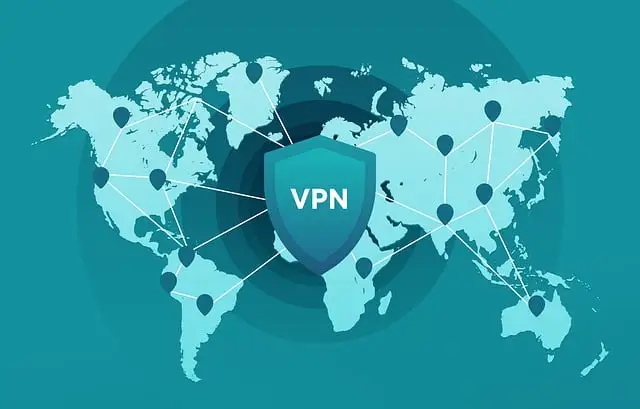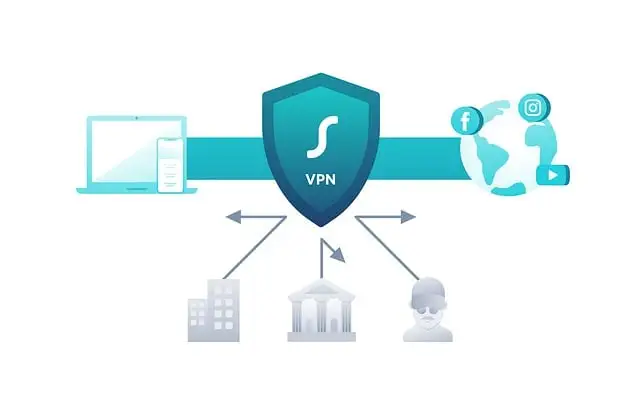Despite how advanced our technologies are today, we still often encounter internet problems. Something like lags and inconsistent internet connection are what we consider as common issues.
But, what if you suddenly can’t access an app you open daily? There have been many cases in which certain apps can’t be opened due to the access block by the government.
There are some countries that completely block access to specific games or software, like the PUBG game that’s banned in India. Due to the geoblocking, people can’t enjoy their favorite entertainment anymore. What you would do in this situation?
Yes, you can overcome the problem by using a VPN. This beneficial tool has been really helpful in dealing with geo-blocking problems by opening access to the servers that spread widely.
It is also useful in keeping connection secure when you browse online. But, what are the other significance of a VPN in other industries? Check the explanation below.
Access Content from All Over The World Using a VPN

Geo-blocking can happen everywhere. But usually, some countries do have tight regulations over the kind of content that can pass through. These happen in some countries, including Russia. The country does limit connection access from the outside. So, to access free in Russia you would need VPN.
Switching locations is as easy as picking any available server provided by the service you use. For example, if you want to enjoy content in the US, simply pick the nearest servers to that country.
Aside from virtually moving from one place to the other, VPNs may also deliver some useful benefits, including hiding actual IP, but we’ll talk about that later. In the below section, we’d like to tell you about the VPN system itself, how it works, and the history of it.
A Brief Explanation of VPN Service
VPN or Virtual Private Network is a connection between one network and the other privately. To better understand it, below we will explain the explanation of each meaning of the word Virtual Private Network:
- Virtual - It means pseudo things.
- Private - This means that the VPN cannot be accessed by just anyone. Data on the VPN network will be encrypted to maintain its confidentiality from the public network.
- Network - Here is a word that refers to networking or interconnected networks.
So, from the explanation and descriptions of the three main words above, we can draw an understanding, that is VPN is a connection that occurs virtually within a certain network.
When activated, the users will be using a connection that’s virtually private, meaning that no one would know about it, and it isn’t easily traced due to the encryption. A VPN service may guarantee someone’s safety when they’re browsing the internet.
Why It Was Made?
After understanding what a VPN actually is, another thing you need to know is the purpose of a VPN. It was originally made to create private connections between many people and devices on the internet.
So basically, it’ll use its own channeled connection which is safer as it’s encrypted which can make users safer when they access everything using the internet. No matter the types of internet connections used, the users’ actual IPs will be kept hidden as long as the VPN stays active.
The VPN technology has been around for decades. Originally created for big business, it was never intended for the various purposes it is used today.
The need of the hour was extraordinary. Businesses, organizations, governments, individuals, and many other parties with sensitive information are at risk of being hacked or losing data when using public or open internet connections.
They need to create connections that are much more secure than average so that remote users, satellite offices, and field operators can access and use company files without having their secrets taken. The solution they got was a VPN designed for various purposes.
How It Works

Using a VPN is now has become way easier than before. Back in the day, in order to use a VPN, users needed to download a VPN extension or make some complex configurations on their devices. Currently, VPN services are available automatically on several browsers, such as Opera.
VPN is also served as a built-in feature on several smartphone brands such as iPhone, Xiaomi, etc. There are also many VPN applications circulating on application platforms that can be downloaded and used for free or for a fee.
By using a VPN, the data and transactions carried out cannot be accessed and tracked by other people, including hackers, the government, and even your Internet Service Providers (ISP).
This may happen because the VPN hides the user's IP address before arriving at the destination site and replaces it with a new IP address.
By changing the IP address, no party can know the user's identity and location. The original data is only known to the VPN service provider used, but its security is guaranteed because the VPN service does not store this data.
General Benefits of VPN
There are some benefits that can be obtained from using a VPN.
1. Confidentially
Using a VPN can keep data and information held by users confidential so that it cannot be used carelessly by other people. As we know, in today's internet era, using a public network can be said to be quite dangerous, especially for large businesses or companies.
For example, in insurance or consulting companies, where the company is sensitive regarding important information. By using a VPN, they can secure incoming and outgoing data through encryption methods.
2. Data Integrity
The next VPN function is data integrity to avoid possible damages from parties or individuals who misuse it and are irresponsible.
The VPN program will ensure that the data transmission process is completed and received from the recipient in accordance with the user's request, without any changes or manipulation of the data sent.
3. Origin Authentication
The program contained in the VPN can authenticate the source of the sender of the data to be received. VPN also ensures and checks the data that will be entered from that data source.
If the authentication process is successful, the information or data can be approved and then accepted. In this case, VPN has the function of analyzing the origin of untrusted data sources, so that it can prevent virus or malware files (and other types of danger) from the data being sent.
The Uses of VPN in Supporting Business
Companies need a secure network to connect geographically separated offices, and the answer is an encrypted private network that can protect the company's confidential information and its users.
VPN is the right answer to provide an affordable local network because it uses internet connection lines that are spread very evenly.
Although initially created for corporate use, VPN service providers see the benefits of this technology as also being beneficial for individual users. Especially because of the proliferation of Wi-Fi hotspots which have become one of the needs of millennials.
No matter what types of personal computers are used, good encryption is always needed to protect important data sent over wireless networks, such as - Account credentials when doing internet banking & important financial data such as - credit card information when shopping online.
On the other hand, blocking and censorship of sites began to occur by many stakeholders. Wiretapping actions by several state agencies abroad such as the NSA also create a high need for anonymity which all answers point to VPN services.
The revelation of the biggest espionage scandal in history revealed by WikiLeaks and Edward Snowden has increasingly made internet users start to think about their privacy. Additionally, certain internet services such as Netflix, BBC, and Hulu are starting to use geo-restrictions based on IP addresses to limit their services.
This is further compounded by discriminatory promotional programs which are only available to internet accessers from certain IPs. Once again the answer to these problems is flexible and anonymous VPN access.
Should Anyone Use VPN?
It’s better to see VPN as complementary to the protective tools, like antivirus and anti-malware technologies we have. However, it can be more fitting for the people who spend most of their time online, whether it’s for casual browsing, gaming, or working. The installation is very simple, and the benefits can be felt in an instant.
With the current technological development and integration with AI technology, who knows that in the future, a VPN service can be an integral part of supporting a large online community.
Tips to Find The Best VPN for You
If you feel interested in trying a VPN service, consider a few tips below:
- Pay attention to the type of protocol and data encryption used.
- Check the available server location and their number. VPNs without geographic restrictions are usually located in America or European countries. Then for the number of servers, choose at least one that has a minimum of 1000 servers, so that the internet connection is fast.
- Choose a VPN service that is suitable and supported by the operating system of the device used.
- Pay attention to data storage privacy. VPN services usually do not store user data, but it is better to double-check the VPN service description.